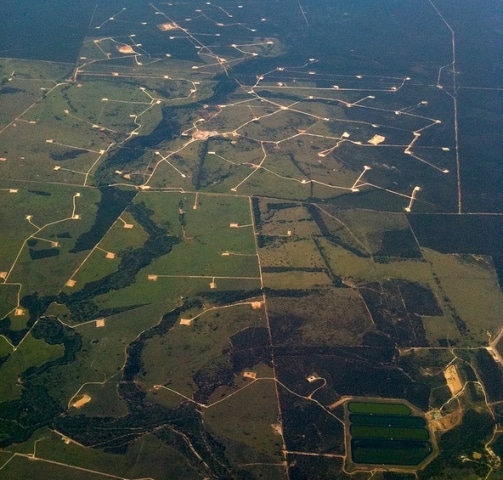A WHISTLEBLOWER has claimed approvals for two multi-billion dollar gas export projects in Australia were waved through government despite warnings that key information on a range of environmental impacts were either missing or inadequate.
Environment assessment specialist Simone Marsh, who had been on secondment to the Queensland Government’s Department of Infrastructure and Planning when the projects were being assessed in early 2010, has spoken of a process where approval of the projects was never in question. Commercial and economic interests were put above environmental concerns.
“All the scientific arguments in the world wouldn’t have changed things in that situation,” Marsh told the ABC‘s investigative journalism documentary program 4 Corners. “They had decided that they wanted to go ahead with the projects and there was nothing stopping it.”
Documents obtained by 4Corners under Right to Information laws in Queensland also reveal how a state government department tasked with assessing the environmental impacts of the projects were looking to provide the state’s co-ordinator general with a “bankable outcome” on which to approve the projects.
The 4 Corners program looked at two major projects costing US$38.9 billion that would drill thousands of wells into coal seams in Queensland and, with the help of hydraulic fracturing and 6500 km of access roads, extract gas and pipe it to a new export facility at Curtis Island beside the Great Barrier Reef. Some 26 million cubic metres are being dredged from Gladstone harbour for the export projects.
The $18.5 billion GLNG project is led by Australian company Santos, in partnership with Malaysian company Petronas, French multinational Total and the South Korean government’s KOGAS, and won approval to drill 2650 wells and lay 435 km of pipeline in an $18.5 billion project. The $20.4 billion Queensland Curtis LNG Project is run by QGC – a wholly-owned subsidiary of UK-listed BG Group, formerly known as British Gas – and won approval to drill 6000 wells and lay 730 km of pipelines.
Simone Marsh told 4 Corners:
Initially it was quite obvious that the proponents were leading the process – they were dictating the speed at which it was progressing and they were dictating the meetings that were occurring. I think the truth is that it’s not an ecologically sustainable activity. Obviously they didn’t want to say that.
They wanted approval to come in and conduct that activity. They didn’t want anyone to understand what the long-term impacts were going to be and the long-term costs associated with this activity. They’re after a bankable outcome, which is not anything to do with an environmental impact assessment process.
They basically just want an approval. That’s all they want is an approval with some conditions that the companies can live with.
One of the most controversial issues related to the CSG industry is its impact on groundwater – a vital water resource for the state’s farming communities – and the potential for drilling and fracking to contaminate and deplete water bores. Yet Marsh claims that despite her internal protests, a decision was made not to have a substantive chapter on the issue in the co-ordinator general’s final report.
Both QGC and Santos have defended their projects saying that they had provided all practical information to the government before the approvals were granted.
Ongoing research by scientists at Southern Cross University, also featured in the 4Corners program, recently found levels of the potent greenhouse gas methane in gas field areas at three times normal levels.
The 4 Corners program is only the latest to raise serious questions about the relationship between the Queensland Government and the multi-billion coal seam gas industry. In August 2011, it was revealed in the Brisbane Times how the Queensland Government did not know the lifecycle greenhouse gas emissions of coal seam gas and were instead relying on work paid for by the gas industry.
Brisbane’s The Courier-Mail revealed in February how public servants were being rushed into the approvals. The newspaper uncovered an email which Marsh had sent to her bosses raising 26 major concerns about the Santos project. In the email, Marsh wrote
It is clear the project’s activities will lead to widespread, serious environmental harm and material environmental harm, as defined by the Environmental Protection Act, both during and following the removal, transportation and processing of coal seam gas…. I am concerned that the proponent has in recent days been submitting comments and requesting alterations to the draft Co-ordinator-General’s report and that paragraphs containing important text appear to have been deleted and other changes made in a non-transparent manner and without adequate justification.
The Courier-Mail has also revealed how Simone Marsh’s former bosses have joined others who have left the state government to work for the coal seam gas industry in the private sector. Calls are being made for the state’s independent Crime and Misconduct Commission to investigate the approvals process behind the two major projects.
Pic: QGC coal seam gas fields at Tara, Queensland. Credit: Flickr/Lock The Gate Alliance
Subscribe to our newsletter
Stay up to date with DeSmog news and alerts







